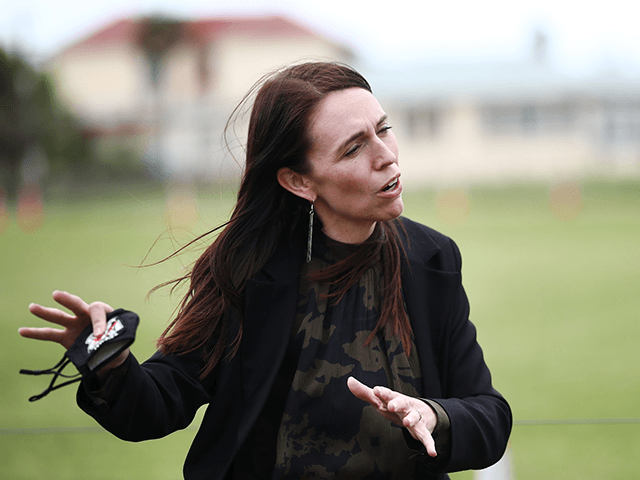New Zealand’s government announced plans on Monday to ease coronavirus restrictions in Aukland despite state health officials earlier that same day recording the country’s highest number of new daily cases since the start of the pandemic, the Australian Broadcasting Corporation (ABC) reported.
New Zealand’s Cabinet agreed on November 1 to reduce the coronavirus alert level for Auckland — New Zealand’s most populous urban center — at 11:59 p.m. on November 9.
“This means retail can return, public facilities can open and gatherings outdoors … can increase to 25,” far-left New Zealand Prime Minister Jacinda Ardern said while announcing the Cabinet’s decision.
New Zealand documented 162 new coronavirus infections on November 1. The figure marked the country’s highest number of new cases reported in a single 24 hour period since the onset of the pandemic. Of the 162 new infections, 156 were detected in Auckland alone.
“For those who have concerns about any easing, here I would say that — because of high vaccination rates in Auckland — we can move forward with greater confidence,” Ardern assured the New Zealand public on November 1.
She said New Zealand’s “daily [coronavirus] cases, while growing, were within expectations.”
“Today, yes, we have seen a growth in cases, but that is not unexpected for where we are in this particular outbreak,” Ardern told reporters Monday.
“But we are still seeing very manageable hospitalizations and that is absolutely the impact that vaccines are having on this outbreak,” the leader added.
Aukland has a population of nearly 1.7 million. The city’s vaccination rate against the Chinese coronavirus stood at 81 percent as of November 2. New Zealand has a population of nearly 4.9 million and a coronavirus vaccination rate of 76 percent.
The government of New Zealand observed a zero-tolerance policy toward coronavirus for most of the pandemic, “using sharp and harsh lockdowns to crush outbreaks as they happened,” ABC recalled on November 1.
“However, a month ago, New Zealand moved away from its elimination strategy, insisting vaccines were now the best way to prevent a widespread outbreak,” according to the broadcaster.
“When Ms Ardern announced New Zealand’s new direction [on November 1], she said Auckland’s lockdown would be scaled back in stages,” ABC noted.
Aukland has been under strict coronavirus lockdown orders for the past 77 days.
“New Zealand, for the first time in months, reported a case of community spread of the coronavirus on Aug. 17,” the New York Times reported October 22.
“Hours later came the expected announcement: The country, after a single case of the Delta variant, would plunge into a highly restrictive three-day lockdown,” the newspaper recalled.
“Two weeks later, New Zealand is still in lockdown, one that will last at least another 14 days. One case has become nearly 700, with almost three dozen requiring hospitalization,” the Times observed.
“Ms. Ardern and other leaders have begun to acknowledge that New Zealand may eventually have to change course as the virus continues to spread,” the U.S.-based newspaper wrote, seeming to predict Aukland’s abandonment of its “zero-tolerance” virus policy this week.

COMMENTS
Please let us know if you're having issues with commenting.